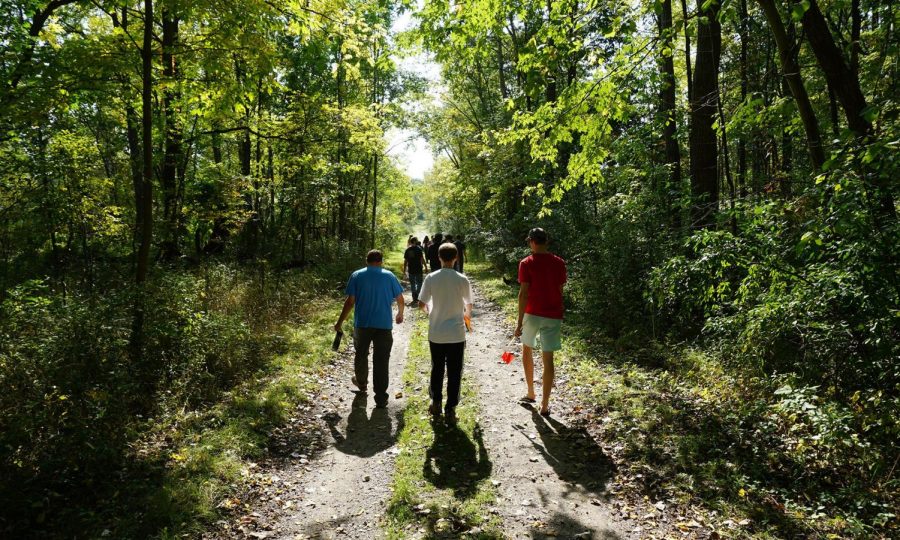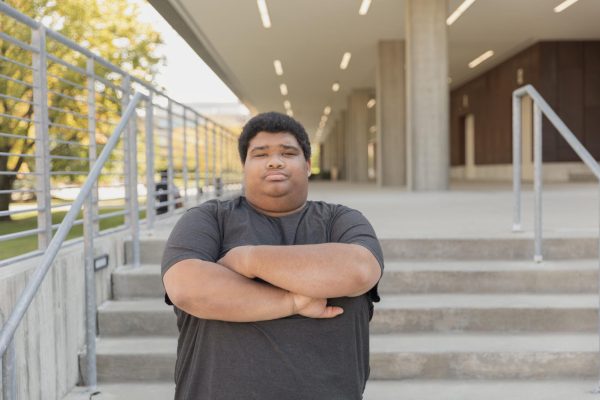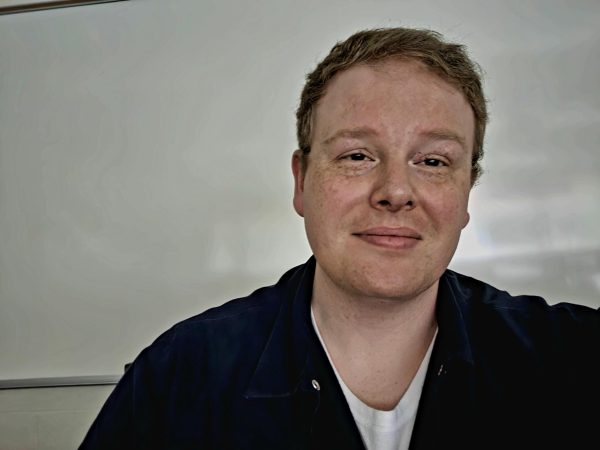Letter to the editor: Campus Alliance for Sustainability and the Environment (CASE-OU) speaks on contract negotiations
A few years ago, Oakland faculty members from across departments began gathering for informal conversations focused on their shared interest in sustainability on campus and beyond: how to minimize waste on campus, protect and nurture our green spaces, reduce the University’s carbon footprint, and raise awareness about climate change and environmental injustice. Today, that small group has grown into a diverse and vibrant community of over 100 faculty, students, staff, and community members called the Campus Alliance for Sustainability and the Environment (CASE-OU). Our shared vision begins with the belief that our present moment demands more than just efforts to recycle and reduce energy consumption. We must also encourage new ways of thinking and living that will allow us to develop more sustainable relationships, cultivate renewable habits, and generate new values that reflect our desire for a more just and habitable world for everyone.
We came together voluntarily, not because such community building and shared visioning is part of our job descriptions or because we were paid to do it, but because we care. We care about the natural environment on campus and beyond, we care about nonhuman life, we care about equity and social justice, and we care deeply about our students and about leaving a habitable planet for them and for future generations of students.
In public statements, Oakland University professes to share these values. President Pescovitz’s “Reimagining OU” endeavor, for example, includes an ambitious Healthy Planet Initiative to advance campus sustainability. Many members of the CASE-OU community have been and continue to be eager participants in the initiative.
However, in recent contract negotiations with faculty, the University has offered a series of proposals that are incommensurate with these values and, what’s worse, threaten to undermine these initiatives.
The core values of Reimagining OU include, for example, Integrity & Respect, Compassion, Inclusivity, and Collaboration. Yet the University proposes to severely cut faculty members’ overall compensation—hardly a sign of respect or compassion either for the expertise of faculty or of the monumental efforts of faculty over the past year and a half. During the pandemic, faculty worked harder than ever, revising syllabi late in a semester, learning new technologies to teach online effectively, and often spending their own money on equipment like microphones, cameras, and lights—all to create productive learning environments for OU students under very difficult and rapidly-changing circumstances.
The University’s proposals also directly contradict the values of Inclusivity and Collaboration, key elements of what academics call “shared governance.” Rather than fostering collaboration and shared decision-making about teaching and learning on campus, the University seeks to exert more and more unilateral control over matters, such as departmental curriculum, that are clearly the purview of expert teachers and scholars, not of administrators or non-academic Trustees. The University is even pursuing the power to lay off faculty at-will, which would render every faculty member, even those with tenure, vulnerable to the whims of those more beholden to economic imperatives than to the educational mission of the university.
Ironically, if Oakland has its way with these proposals, sustainability goals will be all but impossible to achieve. Those goals require both resources and enthusiasm, both of which the University’s proposals would erode. Faculty members who are demoralized and poorly compensated are unlikely to take on the work of developing new courses with a sustainability focus. Similarly, without robust research support, faculty members are unlikely to pursue new avenues of inquiry or embark upon new research agendas. And faculty who feel de-valued and disrespected by the University are certainly going to be less willing to participate in University-led initiatives. Some faculty may leave for positions where they are treated with more respect and Oakland will find itself at a competitive disadvantage with other colleges and universities when it comes to attracting new, high-quality faculty who could help advance the Healthy Planet Initiative.
Finally, the University’s proposals will inflict enormous damage on Oakland’s ability to advance diversity, equity, and inclusion—an essential element, we believe, of any conception of sustainability. Salaries below national averages, slashed benefits, and job insecurity will position Oakland as an inhospitable place to work for Black, Indigenous, and other people of color. Research reveals that faculty of color are already more vulnerable to unfair treatment in the workplace; the erosion of faculty rights on top of less-than-adequate pay will only exacerbate this problem and severely hinder efforts to attract, hire, and retain diverse faculty members.
In short, the University’s proposals appear to be driven by the same short-sighted, market-based thinking—extracting maximum value from available resources, both human and nonhuman, with as little investment as possible—that has produced our current planetary crisis, a warming world whose devastating effects are visible all around us in the form of intensified weather events, heatwaves, forest fires, rising sea levels, and mass species extinctions. Those effects are already amplifying existing global and racialized inequalities and pushing the planet towards interminable conflict.
We formed CASE-OU to help imagine and build worlds that are not beholden to that exploitative logic. Our commitment to sustainability, in its most capacious sense, means that we stand against the degradation of alternative, life-affirming values, just as we stand against the degradation of the environment.
The CASE-OU Steering Committee:
https://sites.google.com/oakland.edu/case-ou/home
Aubrey Arain, Environmental Health and Safety
Alan Epstein, Political Science
Holly Shreve Gilbert, Journalism
Jeffrey Insko, English
Laura K. Landolt, Political Science
Shannan McNair, Human Development and Child Studies
Lily Mendoza, Culture & Communication
Jane O’Neil, Community Member
James W. Perkinson, Communication Studies
Mozhgon Rajee, Public Health
Scott Tiegs, Biological Sciences
Steph Wong, Undergraduate
Letters to the editor can be submitted to [email protected].










Sneaky Moves • Aug 30, 2021 at 11:27 PM
Could it be that the administration is pushing the vaccine mandates to drive away students? This is convenient timing to tank the finances and lower enrollment as an excuse to now cut faculty and reduce spending on the educational arm of the university. Administration, you have taken a beautiful university with caring faculty and crushed it with your totalitarian leanings.